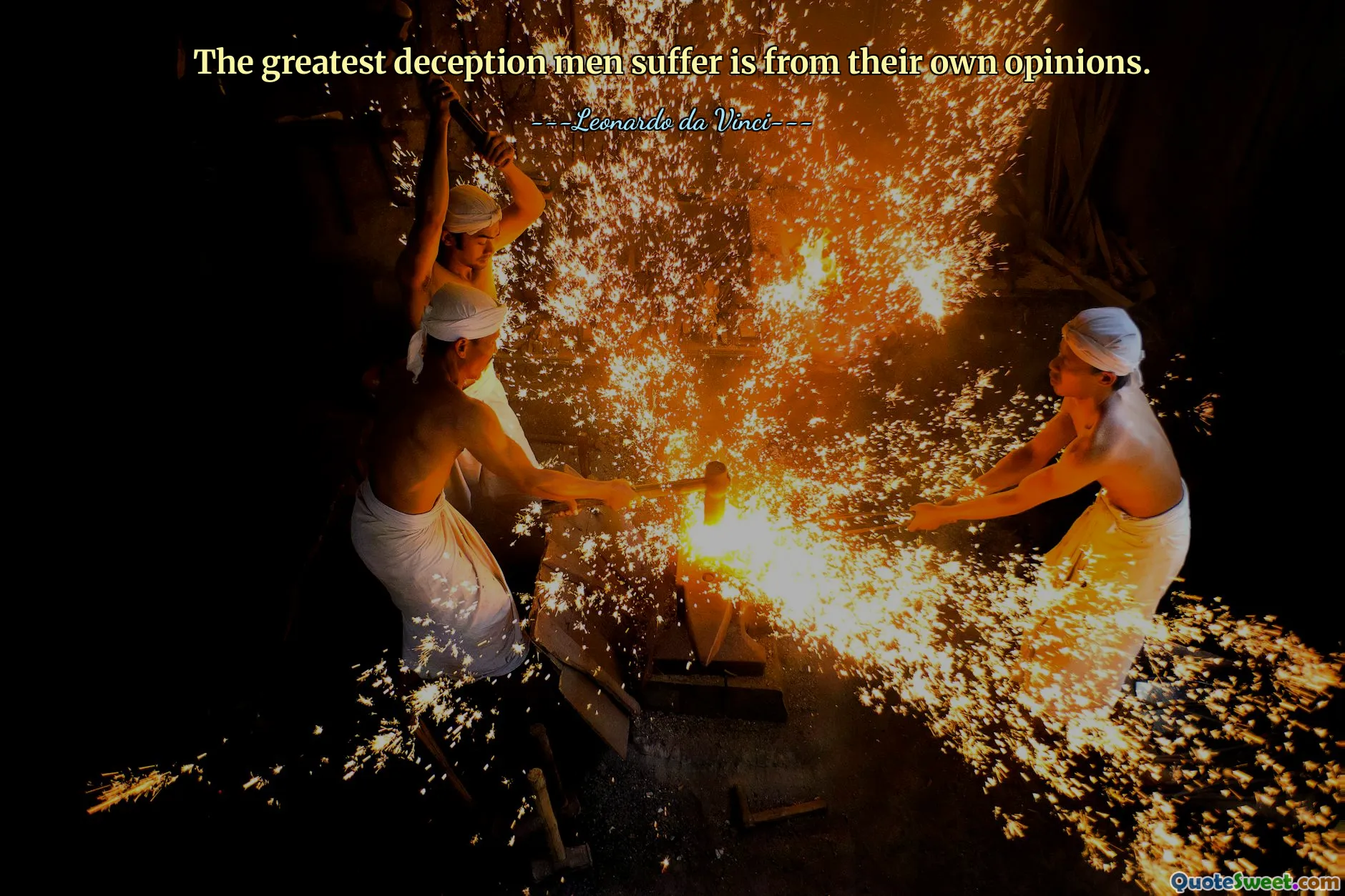
The greatest deception men suffer is from their own opinions.
Leonardo da Vinci's quote, "The greatest deception men suffer is from their own opinions," serves as a profound reminder about the intrinsic biases and limitations embedded within human perspective. It underscores the idea that sometimes, our personal beliefs and viewpoints can cloud our ability to perceive reality objectively, leading us to deceive ourselves more than any external force might. This highlights a key psychological phenomenon where confirmation bias and cognitive dissonance shape our understanding of the world.
In essence, da Vinci warns of the danger of intellectual complacency—holding onto opinions stubbornly without questioning or adjusting them in light of new evidence. This rings especially true in modern times, where information overload and echo chambers reinforce pre-existing misconceptions. The quote inspires humility by encouraging us to constantly challenge our assumptions and to remain open to alternative viewpoints. Recognizing the deception arising from our own minds is the first step toward cultivating true wisdom and empathy.
Moreover, this insight is applicable across many areas of life, from personal relationships to scientific inquiry, and even social and political discourse. When we acknowledge that our opinions might be flawed or incomplete, it fosters a growth mindset geared toward learning and collaboration. In agreeing with da Vinci, we see how self-awareness and critical thinking become essential tools to navigate the complexities of truth. Ultimately, this quote invites us to be vigilant in the pursuit of understanding and to guard against the subtle yet powerful trap of intellectual self-deception.






